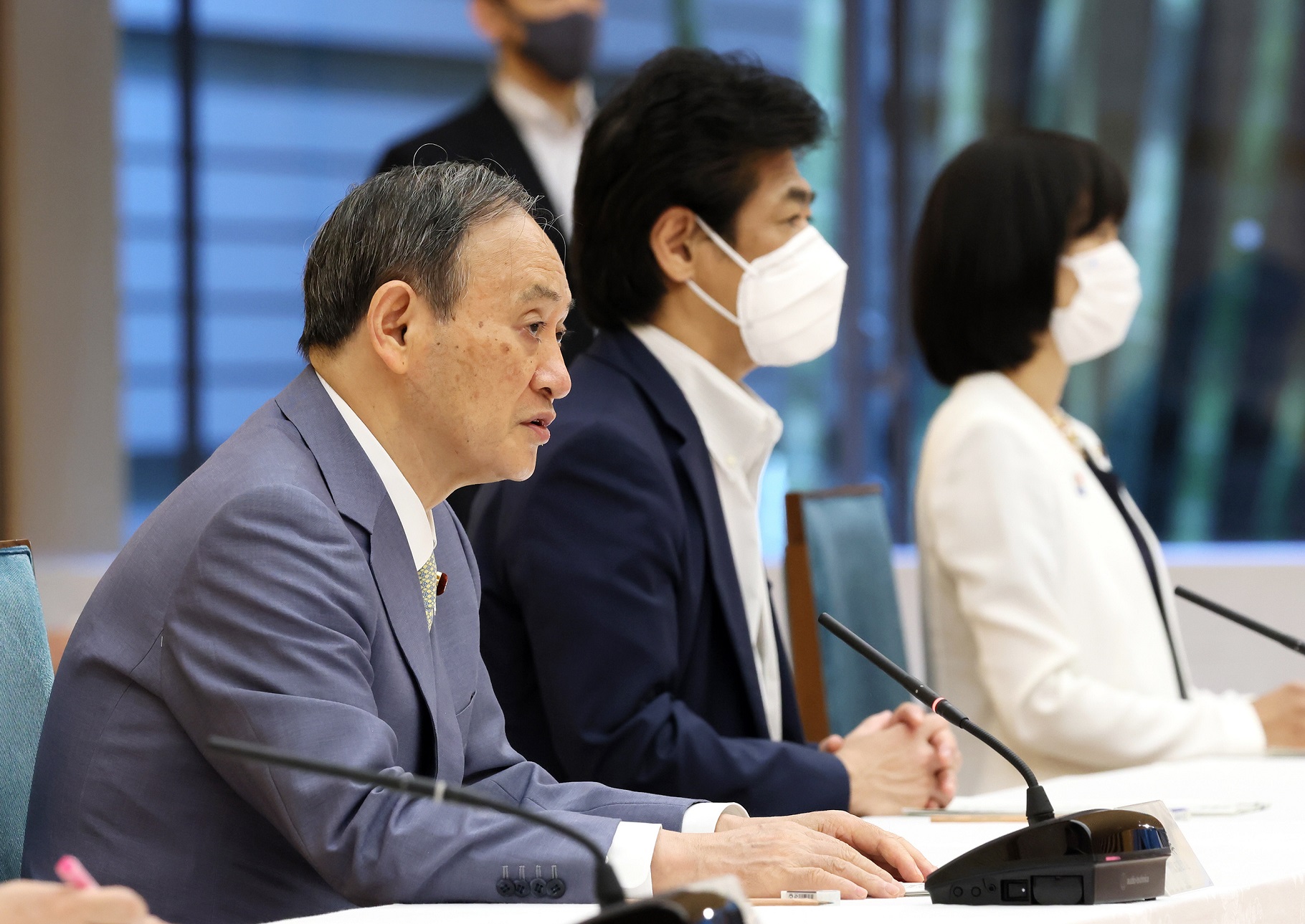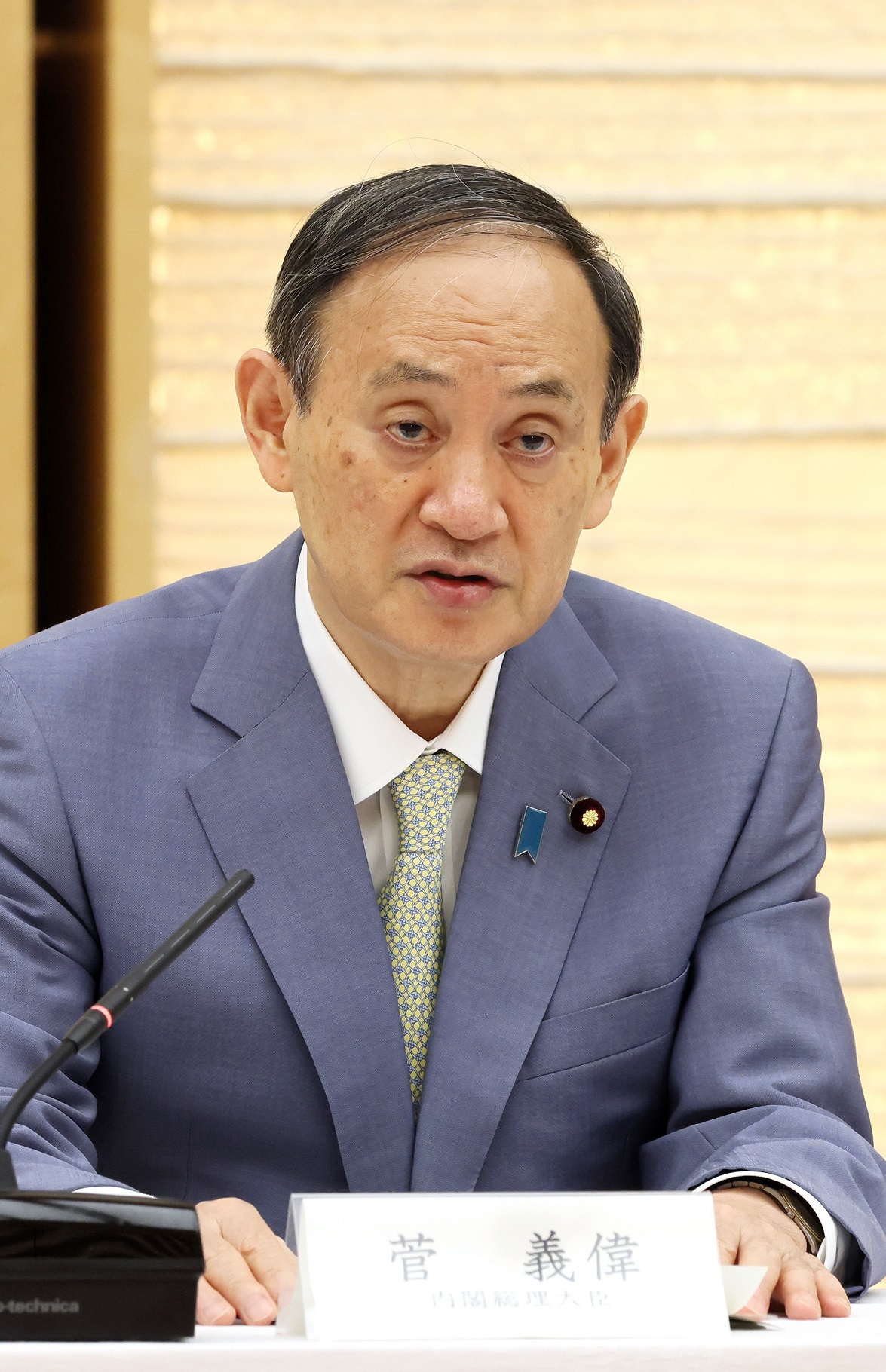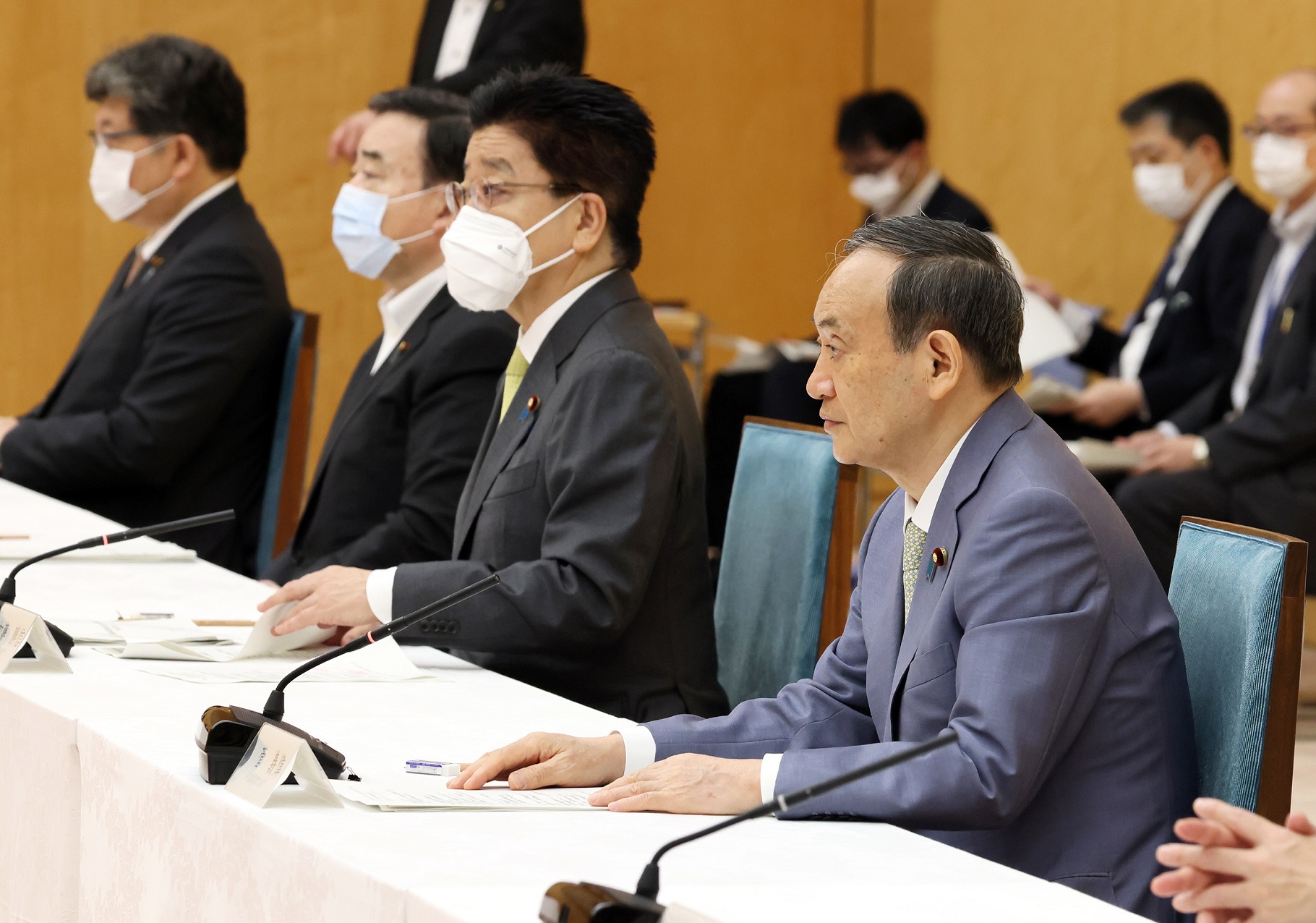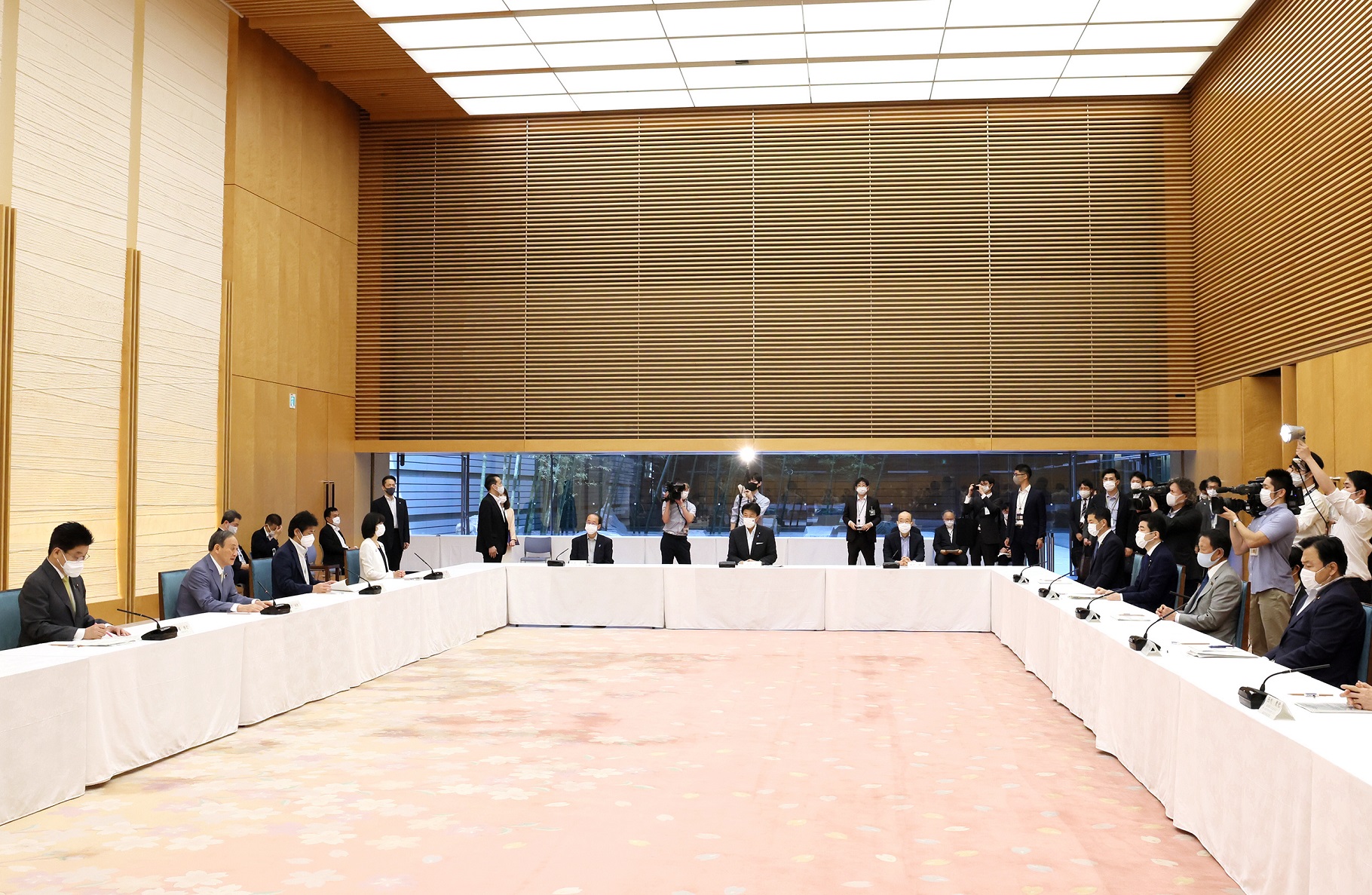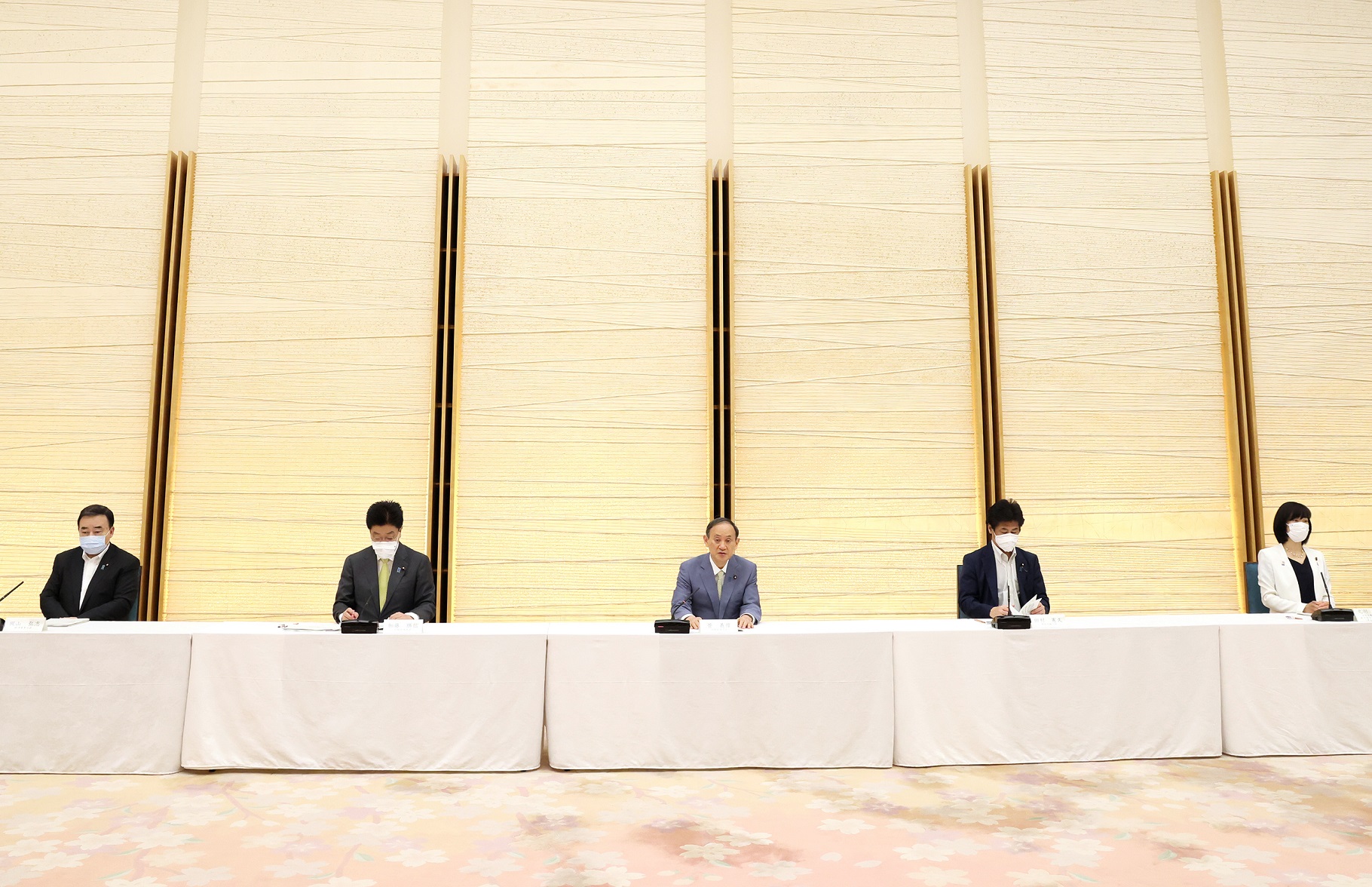Home > News > The Prime Minister in Action > June 2021 > Ministerial Meeting on Emergency Response Measures for Non-Permanent Workers and Others Affected by the Novel Coronavirus
The Prime Minister in Action
Ministerial Meeting on Emergency Response Measures for Non-Permanent Workers and Others Affected by the Novel Coronavirus
June 8, 2021
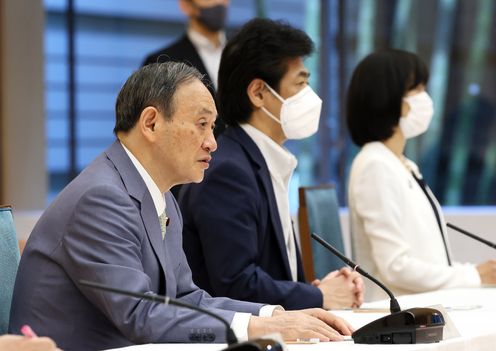
Photograph of the Prime Minister making a statement (1)
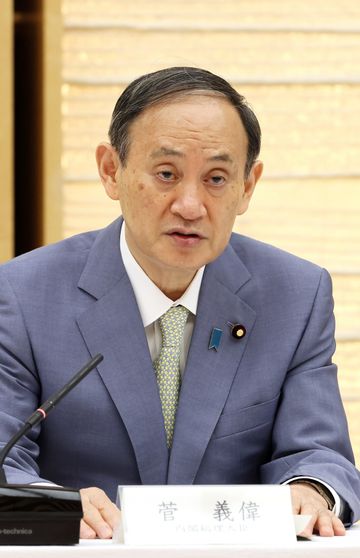
Photograph of the Prime Minister making a statement (2)
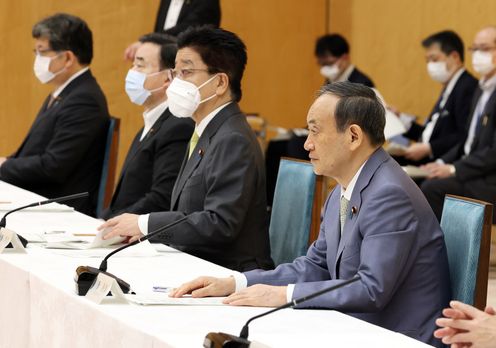
Photograph of the Prime Minister making a statement (3)
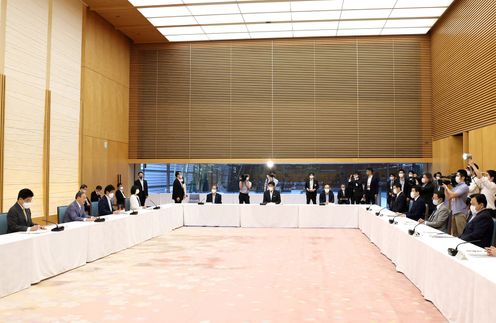
Photograph of the Prime Minister making a statement (4)
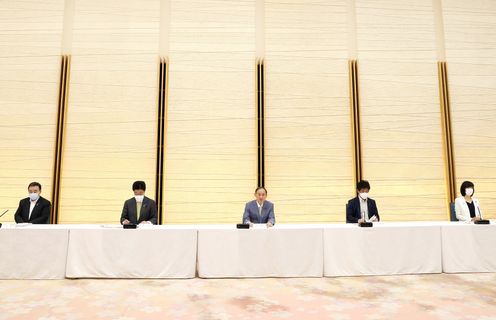
Photograph of the Prime Minister making a statement (5)
[Provisional Translation]
On June 8, 2021, the Prime Minister held the third ministerial meeting on emergency response measures for non-permanent workers and others affected by the novel coronavirus at the Prime Minister’s Office.
At the meeting, the participants held an exchange of views on the responses to the decrease in working opportunities for non-permanent workers and reduction of their working hours (and incomes) due to temporary business closure and fewer working shifts in certain industries, such as dining and drinking and lodging, amid the prolonged impact of the novel coronavirus disease (COVID-19).
Following the discussion, the Prime Minister said,
“The COVID-19 pandemic has lingered and continued to adversely affect the employment situation, including that of non-permanent workers. Therefore, we have decided on additional, more effective measures today.
The first among them is to further promote vocational training. With regard to the scheme that allows non-permanent workers having difficulties in finding jobs to receive subsidies while participating in vocational training in the digital and other fields, we have yet to achieve the usage target. Therefore, going forward, we will raise awareness of the scheme among recipients of Emergency Small Amount Funds and reduce the time required from application to the start of training to approximately half a month.
The second is to promote the shift of human resources to growth areas, such as digital and green fields. We will support universities which provide recurrent education by adding courses for education and training in these fields.
The third is to improve the environment to raise the minimum wage so that the COVID-19 pandemic does not increase the wage disparity. To this end, we will expand the subsidies to raise the minimum hourly wage among businesses. Furthermore, starting this fiscal year, we will launch a price negotiation promotion month to enable small- and medium-sized enterprises (SMEs) to pass on costs to prices, and so-called ”subcontract G-men” will look into the actual situation. We will also enhance financial support, mainly for the restaurant and lodging industries.
I ask each ministry and agency to collaborate with one another and work on these countermeasures.”

